Search
Using the filters to the left, click your selection, it will become bold and filter the results, click it again to remove that filter.
Introduction As the world lurches from one crisis to another, lessons learned from past crises are easily forgotten. In this vein, we can draw useful insights from Operation COVID-19 Assist (OCA) for future domestic operations and for their wider relevance to issues concerning operational readiness. Indeed, the shifting strategic climate referenced in the Defence Strategic Review (DSR) begs the question whether the Australian Defence Force (ADF) should be involved in a domestic emergency on the scale of …

Foreword The Australian soldier has a well-earned reputation for expertise in counter-insurgency. Perhaps this reputation is born from Australia’s experience of the Malayan Emergency, the Borneo Confrontation or the Vietnam War; and it was probably sustained through United Nations deployments as peacekeepers within generally fractured societies. A Framework for Irregular Warfare (the Irregular Warfare Essay Collection), published by the Australian Army Research Centre, responds to this tradition. By …
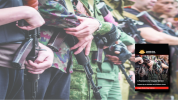
In Occasional Paper 19 , the authors focus on geostrategic trends and atrocity risks, analysing the relevance of these trends to Australia's strategic interests. In this Post, the authors summarise the results of the project which led to the paper's development and they highlight the significance of the challenge facing states seeking to prevent atrocity crimes. … Occasional Paper release - Geostrategic Trends and Atrocity …
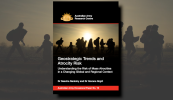
A Plan B: How Might Australia Support Resistance? The Defence Strategic Review (DSR) was a call for action which stated bluntly that we have seen ‘the return of major power strategic competition, the intensity of which should be seen as the defining feature of our region and time’. Examining the ‘state of competition’ globally might also help explain what it is we are competing for. Given the march of autocratic governance regimes within the international world order – regimes that use tools such as …

The Australian Civil Military Centre (ACMC) is seeking project proposals and scholarly articles from interested researchers and authors. This post shares a Call for Proposals recently issued by the ACMC that identifies research themes, and submission guidelines. Completed research will be published in the ACMC Research Compendium. Submissions close on 3 March 2023. Website: https://www.acmc.gov.au Documents for download: ACMC Call for Proposals (PDF 593.53 KB) ACMS Call for Proposals (DOCX 137.79 KB) …

Explaining political precursors to violence in African civil conflicts. Introduction The Mozambique war of independence from Portugal has been regarded as one of Africa’s greatest stories of liberation to date. Scholars from around the globe have written about the conflict and subsequent civil war, exploring the complex factors within the narrative by applying theories of irregular warfare to better understand its drivers, events, and outcomes. Typically, researchers seek to fit a theory to a case study, …
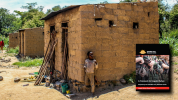
The South Sudanese Civil War as a Case Study for the Insecurity of Women as the Greatest Predictor of Rebellion ABSTRACT This paper aims to provide a context in which the literature of two generally separate fields—gender and insecurity, and predictors of rebellion—can be combined to strengthen the existing framework of security studies. Using the South Sudanese civil war as a case study, it will propose that the greatest indicator of a future uprising is the insecurity of women and that until literature, …
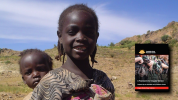
“The problem with being too busy to read is that you learn by experience (or by your men’s experience), i.e. the hard way. By reading, you learn through others’ experiences, generally a better way to do business, especially in our line of work where the consequences of incompetence are so final for young men.” (MAJGEN J Mattis, DIA Reading List 2018) In the conduct of urban warfare, the basic principles have changed little, and slowly, over the last century. Yet there remains no great classical works to …
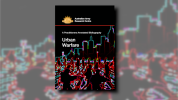
Part 1 of this series addressed the factors surrounding the humanitarian crisis in Yemen, concluding that legitimacy is arguably the single most important resource for governments recovering from civil war. In terms of regional and international pressure, Yemen’s neighbour Saudi Arabia remains the most dominant regional pressure and vocal actor in the Yemen conflict. The UAE is another major player with heavy influence in the region. The success of peace processes and efforts to legitimise Yemen’s …

Yemen’s pathway to peace will involve a focus upon human security issues, inclusive of halting violence, alleviating poverty and unemployment. Through a two-part blog, I demonstrate how this pathway is inextricably linked with issues of the ADF’s security posture and partnership with the United Arab Emirates (UAE) and Australia’s support to UN-led humanitarian initiatives. Even though the ADF has not been actively involved in the growing humanitarian crisis in Yemen, Australia’s trade interests in the …

